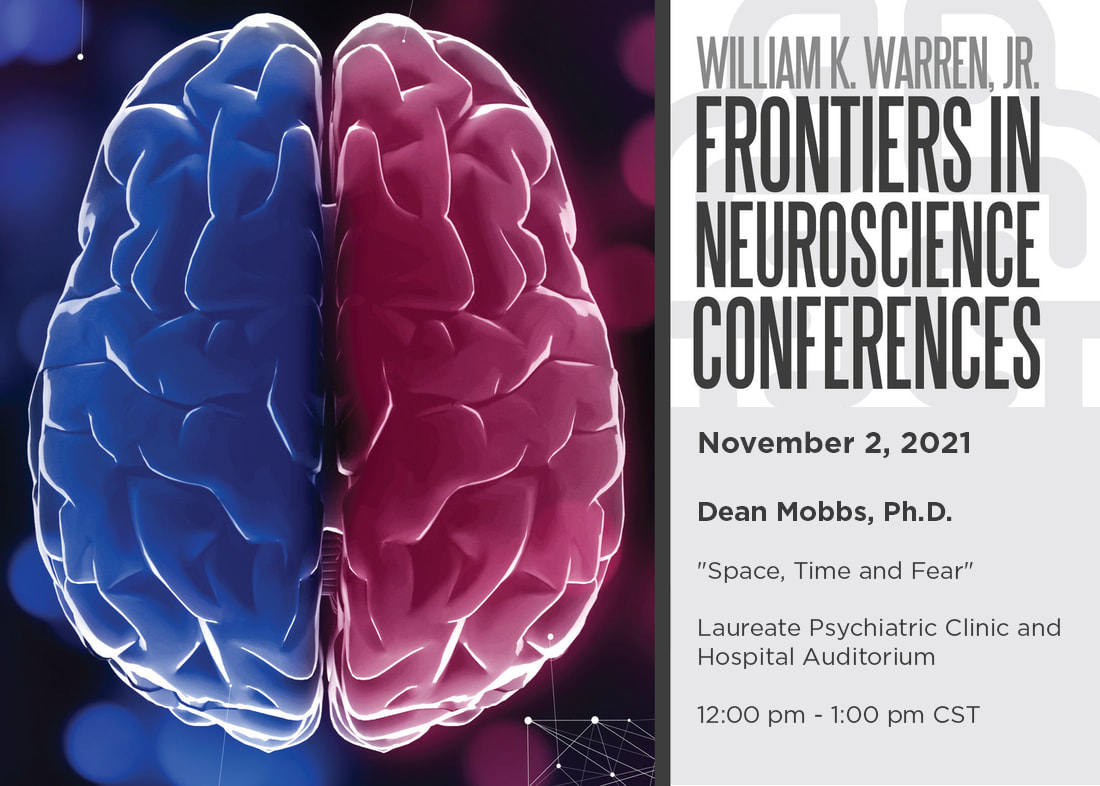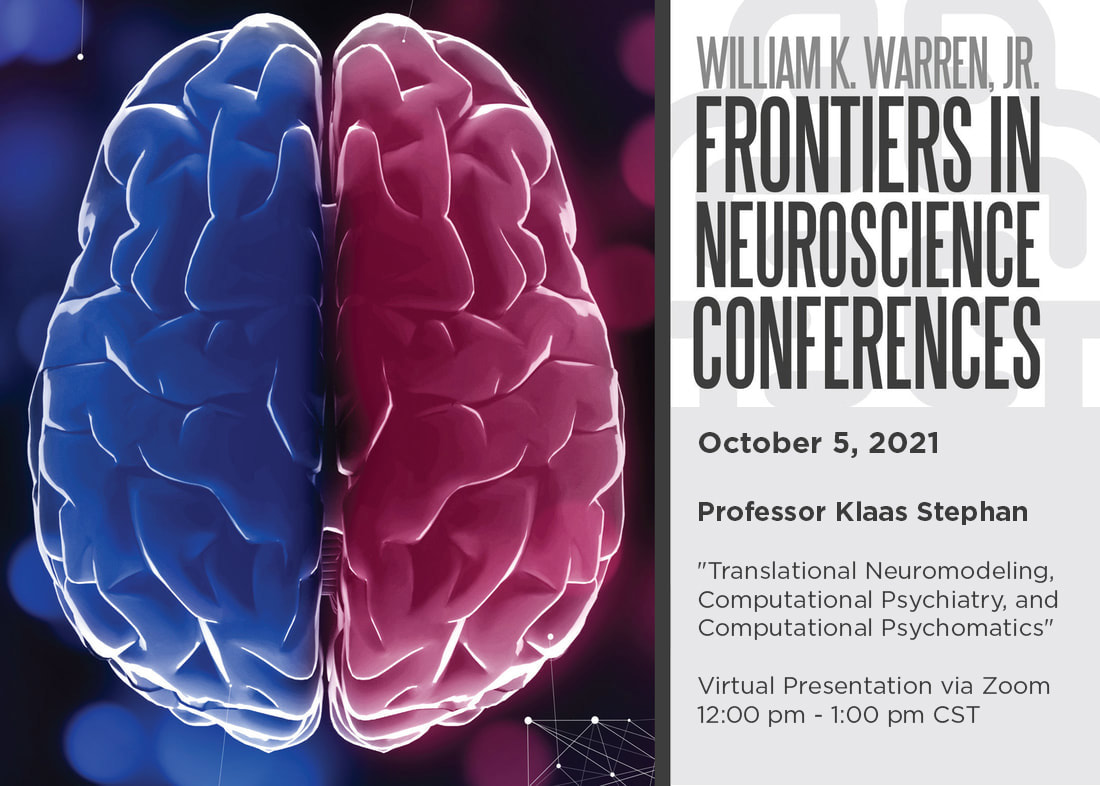|
Dean Mobbs, Ph.D. - November 2, 2021
"Space, Time and Fear" William K. Warren, Jr. Frontiers in Neuroscience Lecture 12:00 pm - 1:00 pm Program in the LPCH auditorium 11:00am - 11:45am Lunch will be served beforehand in the LPCH banquet room Dean Mobbs is interested in the intersection of behavioral ecology, economics, emotion, and social psychology. By understanding the neural, computational and behavioral dynamics of human social and emotional experiences, he wants to develop theoretical models that merge those fields. Using brain-imaging, computational modeling and behavioral techniques, his lab is probing the neurobiological systems responsible for fear and anxiety, revealing how people learn to control their fears, and how anxiety and psychiatric disorders disrupt those processes. He's interested in the value of social behavior. In particular, he's trying to determine the behavioral and neural signatures behind positive social interactions—for example, those involved with altruism, empathy, and when viewing others' success as rewarding (vicarious reward and reflected glory). His research also focuses on the interplay between social interaction and emotion—how fear can depend on whether you're alone or in a group (e.g. risk dilution). Prior to Caltech, Mobbs was an assistant professor of psychology at Columbia University and a research assistant at Stanford University. His awards include the APS Janet Spence Award For Transformative Early Career Contributions (2015) and the NARSAD Young Investigator Award (2015). He is a life fellow of Clare Hall at the University of Cambridge. Learning objectives:
0 Comments
Professor Klaas Stephan - October 5, 2021
"Translational Neuromodeling, Computational Psychiatry, and Computational Psychomatics" William K. Warren, Jr. Frontiers in Neuroscience Lecture VIRTUAL PRESENTATION (see below for Zoom link info) 12:00 pm - 1:00 pm Klaas Enno Stephan is a computational neuroscientist and medical doctor. He is Full Professor for Translational Neuromodeling & Computation Psychiatry at the University of Zurich and ETH Zurich. His scientific work spans the entire translational pipeline, from the development of disease theories via the creation of computational methods to their application in clinical studies. A central goal is the development of clinically useful “computational assays” for psychiatry and psychosomatics, with a current focus on brain-body interactions in fatigue and depression. In 2012, Klaas founded the Translational Neuromodeling Unit (TNU) at Zurich, an interdisciplinary institution with the mission to translate advances in computational neuroscience into diagnostic and prognostic tools for clinical practice. Klaas’ track record includes several disease theories (schizophrenia, fatigue, depression), the development of open source and widely used computational tools for investigating human brain connectivity, as well as numerous studies on psychiatric conditions and disease mechanisms. His work has been recognized by various awards and honours, including the Wiley Young Investigator Award for Human Brain Mapping and election to the Max Planck Society. Learning objectives:
Zoom link: Join Zoom Meeting https://us06web.zoom.us/j/86444675383 Meeting ID: 864 4467 5383 Passcode: 314531 |
Archives
July 2024
Categories
All
|
VISIT LIBR6655 South Yale Ave. Tulsa, OK 74136
918.502.5100 | [email protected] |
|
© 2009-2024. All Rights Reserved. Laureate Institute for Brain Research
Site powered by Laureate Institute for Brain Research



 RSS Feed
RSS Feed